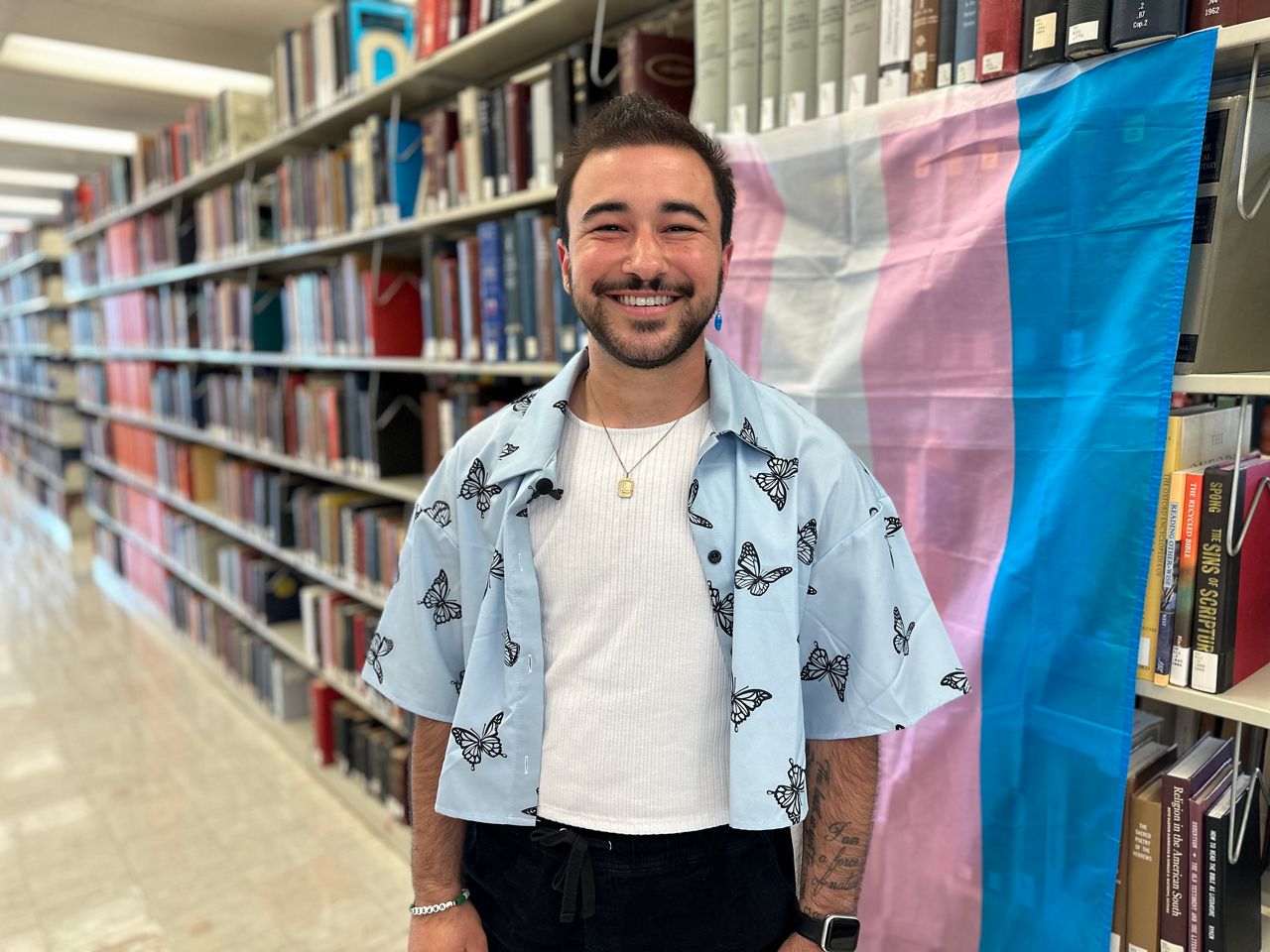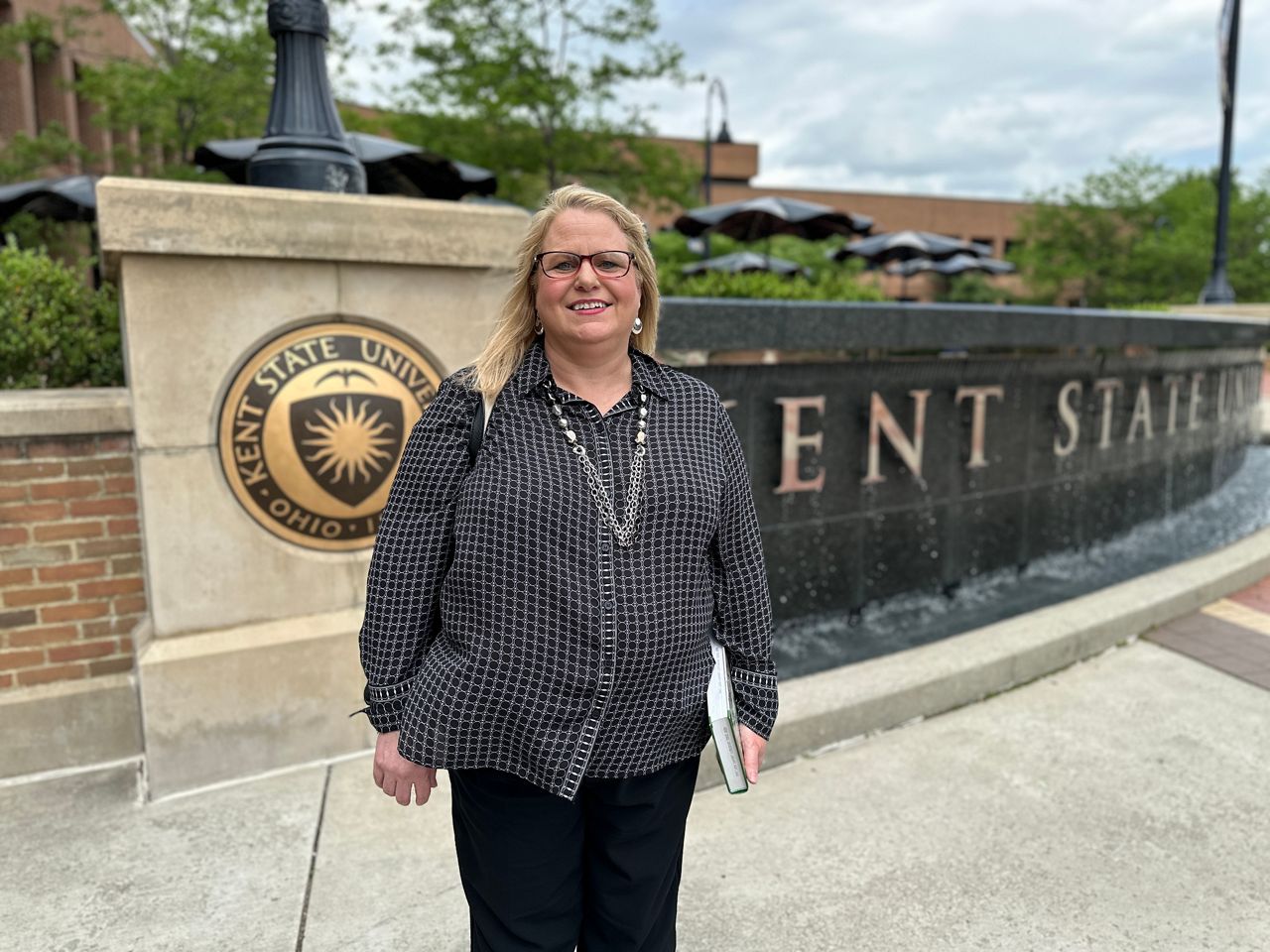Transgender people are the hot topic of conversation in statehouses and media across the U.S.
The rhetoric used by some politicians regarding trans people is scary for many, including Beau Shaniuk, a transgender man from northeast Ohio and Ph.D. candidate at Kent State University.
“I walk around very cautious,” he said.

He said some people think being trans is a new and unnatural concept, but to historians, being transgender is not a new phenomenon.
“Transgender individuals have been in ancient literature, written about even,” said Dana Oleskiewicz, another Ph.D. candidate at Kent State University.
Oleskiewicz is a cis-gendered woman, meaning her gender identity aligns with the sex she was assigned at birth. She and Shaniuk both study gender and LGBTQ+ studies, among other topics, at Kent State University.
“Gender diversity, despite what we are often misled to believe, has existed for centuries,” Shaniuk said. “Across the globe, there are cultures and societies across the entire world that have celebrated and recognized more than two genders for centuries. We have Hijras in South Asian cultures. We have two-spirit people in North American indigenous cultures. We have the bissu in Indonesian cultures.”
In Western Culture, they said trans people have always been demonized because of religious beliefs and fear.
“It has always been a population that has been othered,” Oleskiewicz said. “I think society has struggled to understand, and what we don't understand, we tend to fear.”
The Ph.D. candidates said there are pivotal moments that highlight the rich history of being transgender.
- In 1906, Karl Baer from Germany underwent what’s known to be one of the very first gender-transition surgeries
- In 1919, The Institute for Sexual Research opened in Berlin. It was the first gender research center in the world until The Nazis attacked the clinic and burned the research in 1933
- In 1952, Christine Jorgensen, an American actress and singer became famous in the United States for her public transition
- In 1966, transgender women of color led Compton's Cafeteria Riots to protest arrests by San Francisco police. Gene Compton’s Cafeteria was an all-night restaurant in the Tenderloin neighborhood and a popular queer gathering spot
- Three years later, in 1969 the Stonewall Riots took place, which is known as the start of the modern LGBTQ+ equality movement
- In 1970, in the wake of the Stonewall uprising, trans women Sylvia Rivera and Marsha P. Johnson founded STAR, a program for homeless trans youth in New York City
- In 1976, Renée Richards, a tennis athlete, was a pioneer of trans rights when she successfully fought to compete as a woman in the U.S. Open
- In 1979 The World Professional Association for Transgender Health (WPATH) was founded, although it was originally called The Harry Benjamin International Gender Dysphoria Association (HBIGDA)
- Fast forward to the 2000’s and the Obama Administration overturned the trans-military ban in 2015, which would later be reinstated by former President Donald Trump and then overturned again by current President Joe Biden
- In the mid-2000s, transgender visibility increased because of TV and social media. Trans celebrities like Laverne Cox starred in shows like 2013’s “Orange is the New Black” and became the first trans person featured on the cover of Time Magazine
- In 2015, former Gold medal Olympian Caitlyn Jenner publicly came out as a transgender woman
Bills looking to ban gender-transition care for minors, restrict bathroom use and prevent trans women from playing in women’s sports have popped up in multiple states nationwide.
“And currently, there are over 500 pieces of anti-trans legislation circulating throughout the country right now,” Shaniuk said.
The bills include Ohio House Bill 68, The Save Adolescents from Experimentation (SAFE) Act, that was introduced by Ohio Representative Gary Click and passed in January of this year.
“I totally reject that my bill causes harm. I believe it protects people,” Rep. Click said during a hearing for the bill on Nov. 15, 2023.
“Authoritarianism needs a common enemy, and so targeting a population as the enemy can galvanize voters essentially,” Oleskiewicz said. “When a lot of these bills started coming to be there was, you know, the techniques that are used are very similar to what was used by the tobacco industry for example. It's just sharing information that just has enough of a kernel of the truth, but that it's spun in a way that is falsehood.”
The trans community represents just about 2% of the nation but consists of more than two million people, according to data by IPSOS and The Human Rights Campaign.

Oleskiewicz said she thinks one of the biggest reasons for resistance to the acceptance of transgender people is religion.
“We have a merging of religion and politics happening right now,” Oleskiewicz said. “Most of the bills that are happening, if you look at them close enough, you can usually find an organization that is religious that's backing that.”
Oleskiewicz calls herself a "born-again Christian,” as she started practicing the faith again about ten years ago. She said she felt compelled to help out one of the most vulnerable communities in society after working with a transwoman years ago and seeing how society treated her compared to her peers.
“I worked alongside a transgender individual in the 1990s and so, when all of this political targeting happened in 2015, 2016, I just was led to do something about it, to learn about it, to speak to this and so I did a deep dive not only on the science in the medical but also reading a lot of literature and getting to know individuals who are transgender,” Oleskiewicz said. “The Bible is a book to guide us. It's not a medical one. It’s not a biology textbook and so those things get conflated a lot.”
As an ally to trans people, a scientist and a former professor, she’s hoping to bridge the gap between the LGBTQ+ and religious communities.
“Because they are a minority group they really need allies,” Oleskiewicz said. “There's so much great literature out there that's written by the transgender community that really opens the door to understanding who they are and what they face in society.”
Through education, scholarly articles and encouraging empathetic conversations, Oleskiewicz and Shaniuk hope to change the course of history.
“There are many of us that are open to talking about our experiences and our stories,” Shaniuk said.
They want to help society become more inclusive and accepting of others, and recognize the diversity of humanity.
“I think the future includes queer people,” Oleskiewicz said. “Our society has always had the gender non-conforming and queer people part of it. They've been marginalized for many decades, and we are at a place in our history where we can make a difference and change the society to be more accepting.”
Shaniuk hopes to remind everyone that no matter how someone identifies, they’re still human.
“Regardless of your gender identity, sexual orientation, no person stays the same forever, right? We all are constantly changing, growing, expanding, learning new things,” Shaniuk said. “Humanizing queer existence is so important. At the end of the day, we are literally human beings just like everybody else. We all deserve access to a happy, healthy life as our most authentic selves.”
Spectrum News 1 will bring you stories surrounding the LGBTQ+ community all month long. You can find more stories here online, on the Spectrum News app or on air.



